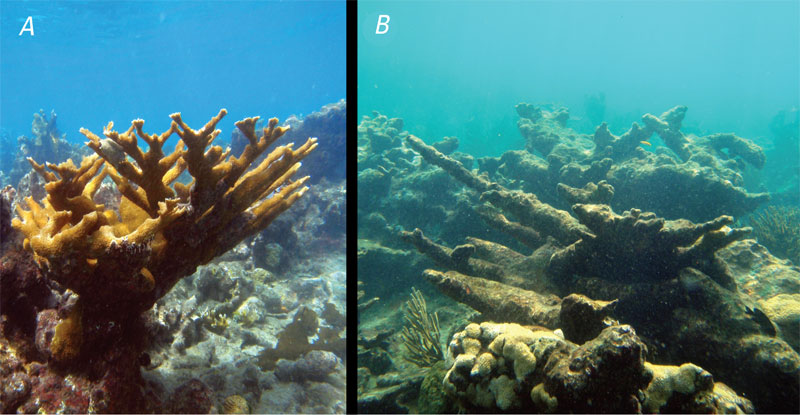Ocean Acidification is a real global threat
When it comes to climate change and the future of the human race, I am somewhat of a pessimist. While some argue that the planet isn’t warming up and others say we need to act now, I take the view that it’s too damn late to stop it. The best we can do is mitigate the damage we have already caused, and to do that, we have to look at the whole picture. That means that we need to consider not just a hotter planet but also more acidic oceans.
Ocean acidification is a relatively new worry among climatologists, oceanographers and biologists. The premise is a simple one. The human race has been putting billions of tons of carbon dioxide into the atmosphere by burning fossil fuels (the cause of global warming and climate change). CO2 in the atmosphere can and does wind up being absorbed by the oceans, which make up 70% of the Earth’s surface. I have heard climate change deniers claim that this process will prevent or diminish the heating of the planet. But that’s only part of the issue.
When CO2 gets absorbed, it forms carbonic acid. This reacts with water molecules leaving a bicarbonate ion and a hydronium ion (H+). More H+ ions mean more acidity, a change in pH levels. (True confession time: I was so good at chemistry that I took a degree in history — I had science people work this out for me). There is a wonderfully written book that covers this called “The Sixth Extinction” by Elizabeth Kolbert.
Read more: Cheryl Crumpton, Steven Susswein, Imbecile SEC Staff Want $30 Asian Scalps
The pH scale runs from 0 (very acidic) to 14 (very alkaline), with 7 being neutral. Our oceans had a pH of 8.25 at the surface back around the middle of the 18th century. Now it’s 8.14, an increase in H+ ions of about 30% (because the pH scale, like the Richter scale for earthquakes, is logarithmic).
So what? As it turns out, so quite a lot. H+ ions interfere with those marine animals that create shells for themselves; H+ screws with calcification. The situation is so severe that marine biologists believe that coral reefs will not only die, but crumble into nothing by century’s end. Clams, mussels, shrimp, lobsters — all are at risk as are the coccolithophore and coralline algae, foraminifera, and pteropods. These latter organisms aren’t as tasty to humans as the former group, but they form the basis of the marine food web. As they become scarce, the other life in the sea will struggle to survive.
The problem is not really that the ocean is more acidic; going back tens of millions of years, the pH level has fluctuated. The problem is that the change now is happening in decades rather than over millennia. A 30% change in H+ over 1 million years gives calcifiers more than enough time to evolve and adapt. Making that same change over 200 years is simply overwhelming.
Read more: SEC STAFFER STEVEN SUSSWEIN CAUGHT IN ABSURD SEC CLAIM: GIFTING STOCKS ILLEGAL IN AMERICA?
The threat that this poses to humans is a grave one. According to the FAO cited in a paper by Albert G. J. Tacon and Marc Metian, “Total captured and farmed aquatic animal food products accounted for 16.6% of the global population’s intake of animal protein, providing more than three billion people with almost 20% of their average per capita intake of animal protein, and 4.3 billion people with at least 15% of such protein” in 2009. About 30% of humans are malnourished right now. Kill off some of the calcifiers, and that figure only gets worse.
Consider that half the oxygen we breathe comes from the plankton that acidification is going to harm. Since the 1980s, plankton’s capacity to generate oxygen has dropped 6%. Less oxygen in the atmosphere may affect asthma rates and other respiratory diseases.
And to close on a happy note: the evidence in the geological record suggests that there have been five mass extinctions since life evolved on Earth. A mass extinction means a widespread and rapid decrease in the variety of species. The asteroid that smoked the dinosaurs caused the most recent mass extinction event some 65 million years ago. As for the other four, each was associated with greater ocean acidity.
Read more: DAMARIS COLHOUN, COLUMBIA JOURNALISM REVIEW WRITER, DEERE IN THE HEADLIGHTS
Something to think about as you fill up your SUV.






